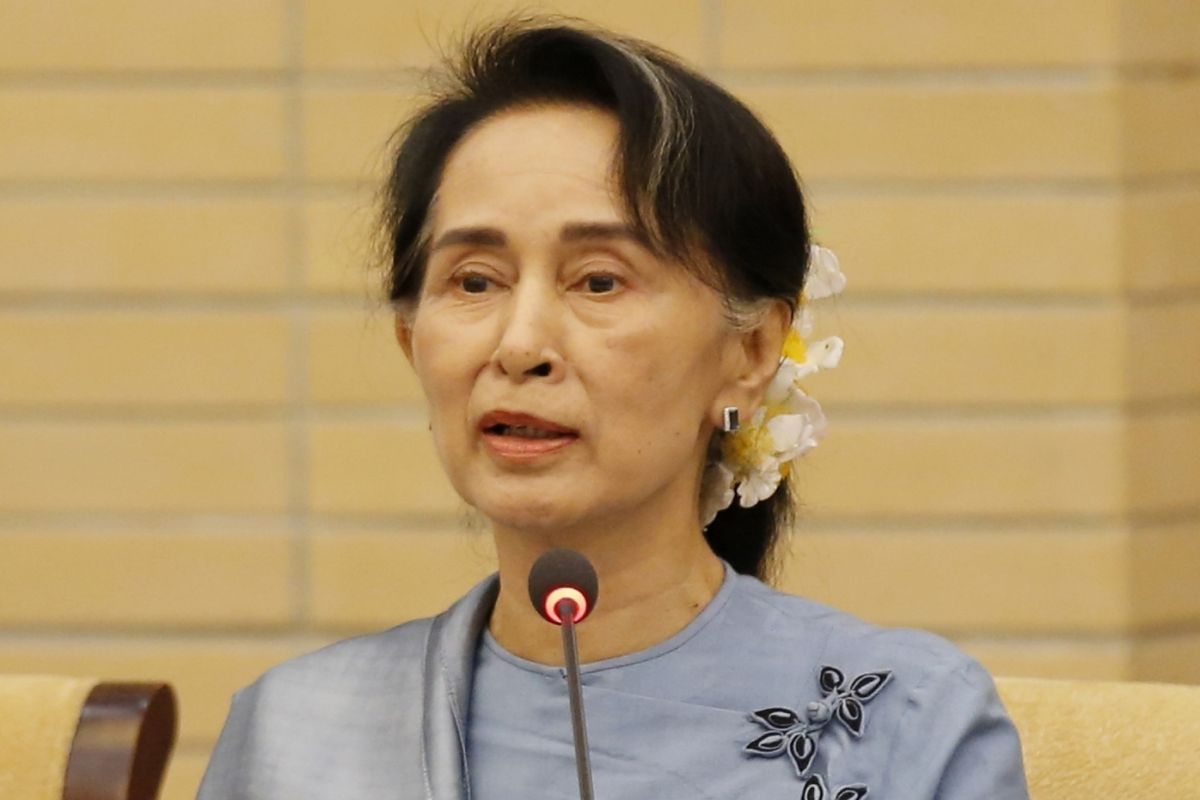Election Farce
Four years after seizing power in a coup, Myanmar’s military rulers continue their desperate yet failing bid to tighten their grip, this time by extending emergency rule under the pretext of preparing for elections.
Myanmar has always insisted it was tackling an extremist threat in Rakhine state, and Suu Kyi maintained that stance, calling the violence an “internal armed conflict triggered by attacks on police posts”.

Myanmar State Counselor Aung San Suu Kyi. (File Photo: IANS)
Nobel Peace Prize winner Aung San Suu Kyi on Wednesday rejected the genocide allegations against Myanmar’s military amid accusations of mass killings, rape, and expulsion of the Rohingya Muslim minority.
In her opening remarks at the International Court of Justice (ICJ), she called the case against Myanmar “incomplete and incorrect”, reported the BBC.
Advertisement
She said troubles in Rakhine, where many Rohingya lived, go back to centuries.
Advertisement
Thousands of Rohingya were killed and more than 7,00,000 fled to neighbouring Bangladesh during an army crackdown in Buddhist-majority Myanmar in 2017.
Myanmar has always insisted it was tackling an extremist threat in Rakhine state, and Suu Kyi maintained that stance, calling the violence an “internal armed conflict triggered by attacks on police posts”.
She told the court that the violence was started by militants seeking independence. She said that if war crimes were committed by Myanmar’s military “they will be prosecuted”.
Suu Kyi said Myanmar was committed to the safe repatriation of people displaced from Rakhine and urged the court to avoid any action that could aggravate the conflict, reported the BBC.
At the start of 2017, there were one million Rohingya in Myanmar, most living in Rakhine state.
But Myanmar, a mainly Buddhist country, considers them illegal immigrants and denies them citizenship.
The Gambia, a West African country, launched the case against Myanmar at the ICJ, the United Nations’s highest court, alleging it violated the 1948 Genocide Convention.
According to The Gambia’s submission to the ICJ, the military stands accused of “widespread and systematic clearance operations” against the Rohingya, beginning in October 2016 and expanding in August 2017.
The Gambia’s petition alleges that the clearances were “intended to destroy the Rohingya as a group, in whole or in part”, via mass murder, rape and setting fire to their buildings “often with inhabitants locked inside”.
A UN fact-finding mission which investigated the allegations found such compelling evidence that it said the Burmese army must be investigated for genocide against Rohingya Muslims in Rakhine.
Advertisement